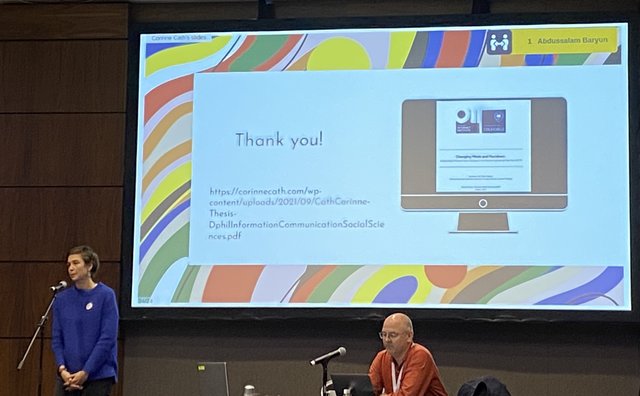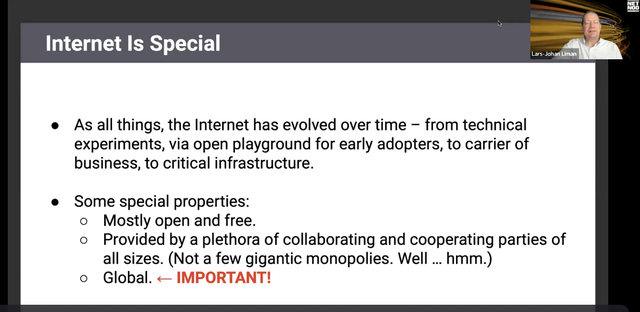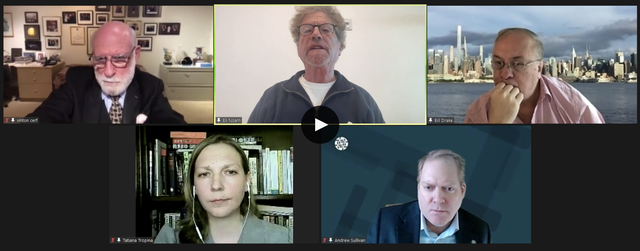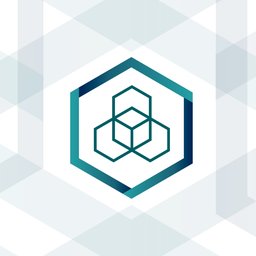With RIPE 85, IETF 115, an ISOC members meeting, an ICANN webinar on Internet legislation, and many other events, November has been a busy time for the Internet community. As the RIPE Chair Team, one of our tasks is it to keep an eye on developments that are relevant to the RIPE community and to report back to you. So let's jump right in!
Over the past weeks, we've been following up from the RIPE 85 Meeting in Belgrade. Some of the work here has focused on updated versions of the RIPE NomCom documents. And then there's the charter for the new RIPE Task Force, which was proposed during the Community Plenary session that you learn more about from the Community Plenary minutes. Announcements on both of these topics will follow on the RIPE list soon. There were also interesting discussions on a number of RIPE WG mailing lists, most notably:
- A continuation of the discussion phase for the policy proposal 2022-02 (see Address Policy WG)
- A discussion related to the review of the IPv4 pool for IXPs (see Address Policy WG)
- A review of the policy for temporary assignments (see Address Policy WG)
- A discussion related to the protecting of resource holders in distressed areas (see RIPE NCC Service WG)
- Policy proposal 2022-01 has been withdrawn (see Database WG)
- A proposal to change the AS-SET object naming rules (see NWI 19 of the Database WG)
In addition to all this, there have also been several other industry events taking place recently - some face-to face, others online. I would like to share some findings with you below.
Industry Events
IETF 115

The IETF 115 meeting in London was my first face-to-face IETF meeting since before the pandemic. I spent most of my time there catching up with friends and colleagues which was amazingly useful and rewarding. Here's a run down of some of the topics that came up during the week that are particularly relevant in terms of RIPE community engagement.
The IETF and policy
On Monday afternoon, I participated in a side meeting organised by the UK’s Department for Digital, Culture, Media and Sport (DCMS) together with the Internet Society. The aim was to explore the intersection of public policy and IETF work and to discuss ways in which public policymakers can engage with the IETF. During the session, I described how the RIPE Cooperation working group successfully provides such an opportunity in the RIPE context (in addition to the Government Roundtable meetings the RIPE NCC organises for governments). The IETF is considering setting up a similar forum, possibly organised jointly by the IAB and the Internet Society.
The IETF and research
It is worth following some of the research groups at the IETF's sister organisation - the Internet Research Task Force (IRTF). This time, I attended the Global Access to the Internet for All research group (GAIA) that provides visibility to community networks and other projects that help people to connect to the Internet. Once more, the co-chairs put together a series of really interesting presentations (you can see the recording online). Maybe most relevant for the RIPE Community was a presentation by John Scouter about the IXP Neutrality Project. This was initially presented at RIPE 84. It is interesting to note that both co-chairs and all but one presenter participated online. This worked amazingly well - even though I did miss the RIPE stenographers at times 😉.

Another interesting session I attended was the IRTF Open Meeting that featured talks by the three winners of the Internet Research Task Force Applied Network Research Prize: Gautam Akiwate, Corinne Cath, and Daniel Wagner. Corinne Cath presented her paper on The Technology We Choose to Create. This is a continuation of earlier work Corinne has done (see Corinne's presentation at RIPE 83). Daniel Wagner also presented at RIPE 85.
IETF leadership
It's NomCom time at the IETF. There are many positions to fill in almost all IETF bodies: IAB, IESG, IETF Trust, IETF LLC Board. As you can see on the IETF NomCom pages, I accepted a nomination for the IETF LLC Board. Until 28 November 2022, you can provide feedback to the NomCom about my nomination and all other candidates for all positions. This will help the NomCom to make their decision.
Remote participation
It was curious to see how Meetecho was used at the IETF, and especially the Meetecho queue. Participants consistently used the Meetecho app to put themselves in the queue when they had questions or comments. Everyone gets their slot in the queue independent of where they are: in the room or online. This treats everyone fairly and avoids the risk that online questions are dealt with at the end when the discussion might have moved on to other topics. This also allows participants to see the name of the person who is at the mic on the screen.
IETF and COVID
I was intrigued by the strict mask policy that required all participants to wear an FFP2 mask inside all meeting rooms. This was implemented based on the outcome of a survey conducted among the IETF community prior to the meeting in London. Pretty much everyone followed that policy and consequently, there were very few reported COVID cases after the meeting. In this context, see this interesting analysis of Carbon Dioxide measurements Wes Hardaker did during the week.
ISOC members meeting
On 14 November, I attended an online session the Internet Society organised for their members and chapters. It covered an interesting mix of topics. It was kicked off by a short status update on the debate surrounding Over The Top (OTT) Media Services and Internet Cost Sharing. For more details on the topic, you can watch the recording of the panel discussion at the RIPE Cooperation WG at RIPE 84. This was followed by a number of project presentations that are funded by the Internet Society Foundation. At the end, Amreesh Phokeer talked about the Pulse Project, a platform that combines data from various trusted sources and helps people understand Internet shutdowns, market centralisation and other developments. Unfortunately, RIPE Atlas is not one of the data sources listed on the page. You can watch the recording of the session.
ICANN webinar on Internet legislation

As part of their Training Series for the Nordic Region, ICANN organised an online session to highlight an increasing number of legislative and policy initiatives in the field of Internet technology. The first speaker Lars-Johan Liman, co-founder of Netnod, focused on initiatives that would have an impact on the DNS - such as the NIS2 Directive, the DNS4EU proposal, and the Cyber Resilience Act (CRA), which could have a huge impact on the use of open source software on the Internet (in this context, also see this blog post by Olaf Kolkman and this blog post by Maarten Aertsen).
The second speaker - Nora Mari of ICANN's Government Engagement Team - focused more on why the EU is issuing such a flood of initiatives to regulate "all digital". While the main focus is on platforms and content, these proposals often have (unintentional?) serious implications on the Internet infrastructure. Both speakers urged the technical community to continue to engage with governments and to raise awareness of the detrimental implications some of this legislation would have on the stability of the underlying Internet infrastructure.
The next speaker in this series will be Suzanne Taylor, Public Policy expert at the RIPE NCC, talking about the state of IPv6 in the Nordics.
Internet Fragmentation
Seminar on Internet Fragmentation

As a part of the CITI Seminars on Global Digital Governance, a panel was organised to discuss the question of Internet fragmentation. With the set of panelists - Vinton G. Cerf (Google), Eli Noam (CITI), William Drake (CITI), Tatiana Tropina (Leiden University), and Andrew Sullivan (ISOC) - this promised to be an exciting debate. The panelists couldn't really agree on a definition of fragmentation or if this is even relevant for the discussion. They also quickly moved away from topics such as alternate roots or different name spaces.
Instead, all speakers agreed that the much bigger threat is the disruption of the free flow of data and information and the attempt by governments to introduce legislation that would in fact be an extension of censorship and control in the "real" world under the claim to protect their citizens. Certain policies and legislations would not just fragment the Internet, they would actually break it. Technical experts need to be involved in these discussions. As Andrew Sullivan said: "We need to explain to governments what would break and we need to call out those governments who are moving ahead anyway." Tatiana Tropina noted that the Internet is not just technical infrastructure, but that it is also based on trust and community coordination and we need to cherish that. If you are interested in tis topic, I recommend you watch the recording of this session.
NL-IGF
In preparation for the Internet Governance Forum 2022 - where fragmentation will be one of the topics - the Dutch IGF organised a session on Internet fragmentation in The Hague on 21 November. Chris Buckridge (RIPE NCC) gave a run through of the current discussions around Internet fragmentation. He pointed out that, in addition to standards, protocols, identifiers, and so on, the functioning of the Internet is based on agreements about how to maintain and steward each part of the infrastructure. But we are currently seeing doubts about these agreements. Chris urged everyone not to give up on the multistakeholder model and to continue to demonstrate that we know how to maintain the Internet.
The bulk of the meeting was dedicated to a panel discussion with very active engagement from the audience. In closing, Nathalie Jaarsma, cyber ambassador at the Dutch Ministry for Foreign Affairs, said that if countries want to use the digital world and the Internet to foster economic growth, they also need to understand that this is not possible without trust - and trust requires continuity!




Comments 0
The comments section is closed for articles published more than a year ago. If you'd like to inform us of any issues, please contact us.